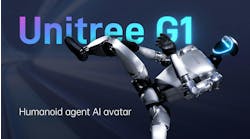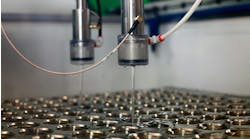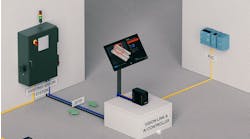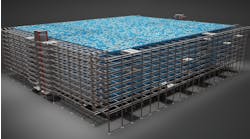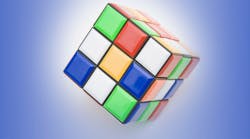At a conference a few years ago, I was leading what was supposed to have been a roundtable discussion on robots and 3D printing. But one comment early on derailed us quickly into much more existential matters.
"The kids coming into my shop don't know anything," someone said. "They want to use their phones for everything."
The rest of the room—filled almost entirely with boomers and early Gen-Xers—nodded in agreement.
After a bit of prodding, the guy admitted that his millennial hires do know the basic stuff—they know their math and engineering, and certainly they understand the technology. Technically, they have everything the job requires. But, to this crowd, their lack of general knowledge and their dependence on phones for details made them stupid.
Trivia, this group seemed to think, was intelligence. And until that point, I tended to agree. Growing up, this was the ultimate social IQ test—whoever could recount the most obscure facts about a thing was clearly the smartest person in the room. That's the same notion that has probably kept Jeopardy! on the air for so long.
But it's also, I realized, probably no longer true.
I pulled out my phone and threw it on the table.
"I have access to the totality of human knowledge right here," I told them. "What is the point of keeping it all in my head anymore?"
To illustrate the point, we went around the room and listed the last phone numbers we could remember. Most of us could recall dozens of digits dating all the way back to grade school. But then our memories all suddenly stopped about 10 years ago when we got our first smartphones. The best of us could recall three current phone numbers; I only knew one.
It's the same for everything now, I think. There's no longer any point to memorizing minutia, in showing off your trivia knowledge. And our brains aren't very good at that kind of thing anyway. But what they are very good at is synthesis.
Humans have a very keen ability to abstract pieces of information into a coherent whole—our brains are just story tellers at their core. And the smartest of us, especially today, are the ones who can synthesize information the best.
This, I argued, is the new definition of intelligence. Anyone can Google a fact, but it takes human intelligence to understand the meaning of those facts, to understand the system. For a generation of students that grew up with unfettered access to all knowable things, this has become the standard. The concern is no longer the things, but what the things mean. And the best of them, the smartest people and the most efficient workers of this generation, are the ones who excel at that along with all their science and technology and engineering and maths.
Which brings us to the point: STEAM > STEM.
As contributor Jesse Z. Melton notes in his article, "The Case for Adding Art in Technical Curriculums," creativity and abstract thinking aren't generally taught in STEM courses—if anything they teach the opposite. But that's exactly what the arts do teach. And it's those "artsy' concepts that matter the most in the industry today. Adding creativity and free abstract thinking into an otherwise developed engineering brain gives us a powerful asset. It's exactly what we need if we're going to find new ways to make things, new ways to harness all of the tech and tools at our disposal, and figure out how to succeed in this future we're building.
Memorization doesn't help us anymore; it's understanding that matters.
And so, when I look back at that weird roundtable—at which no one learned a thing about robots or 3D printing—I think I still agree with our conclusions: trivia is for game shows and parlor tricks; today's smart workers know how to think.

